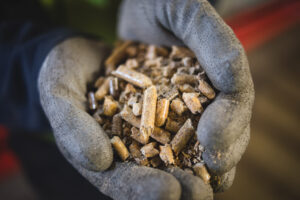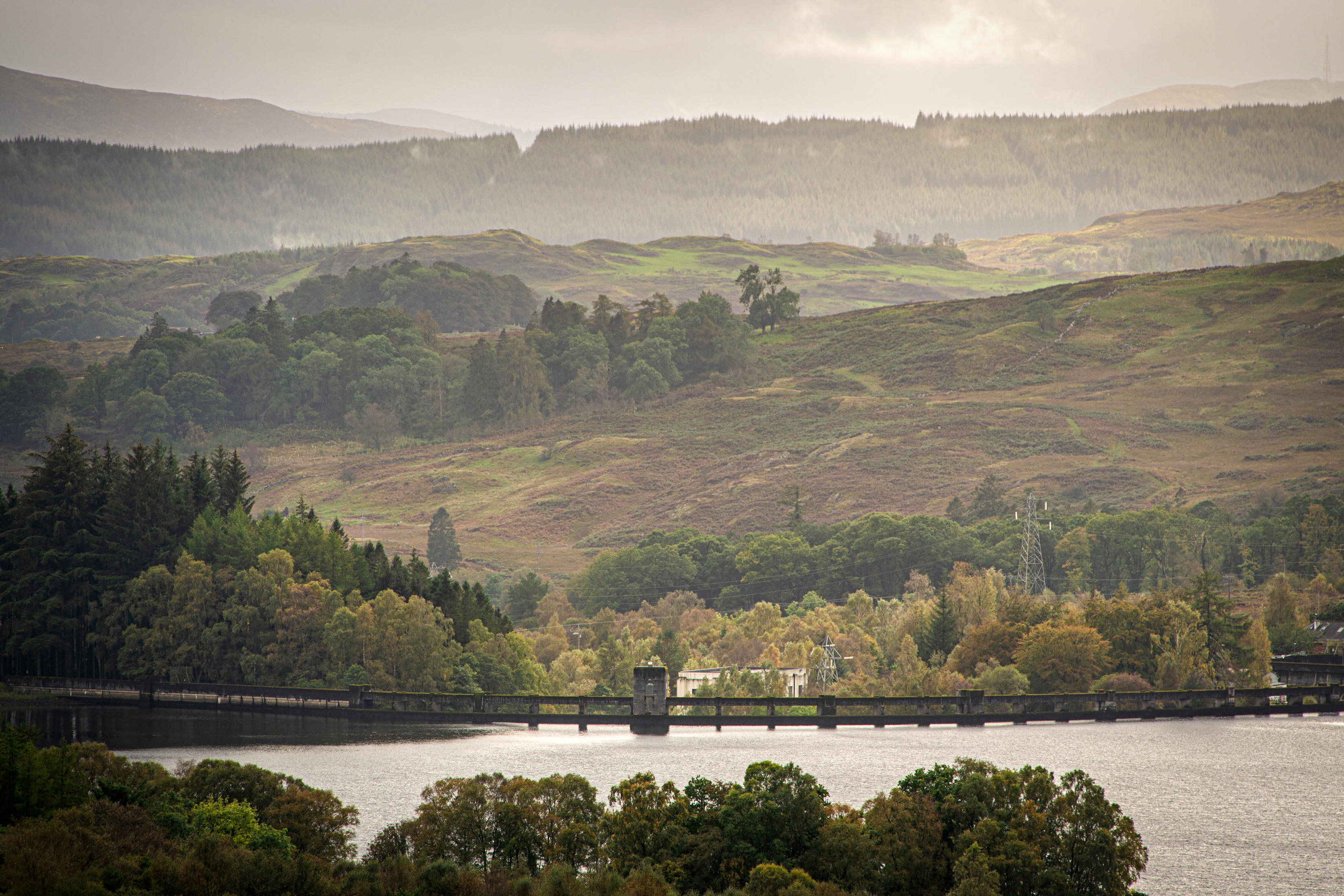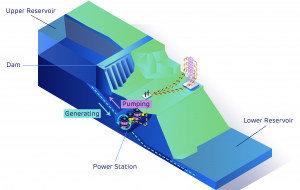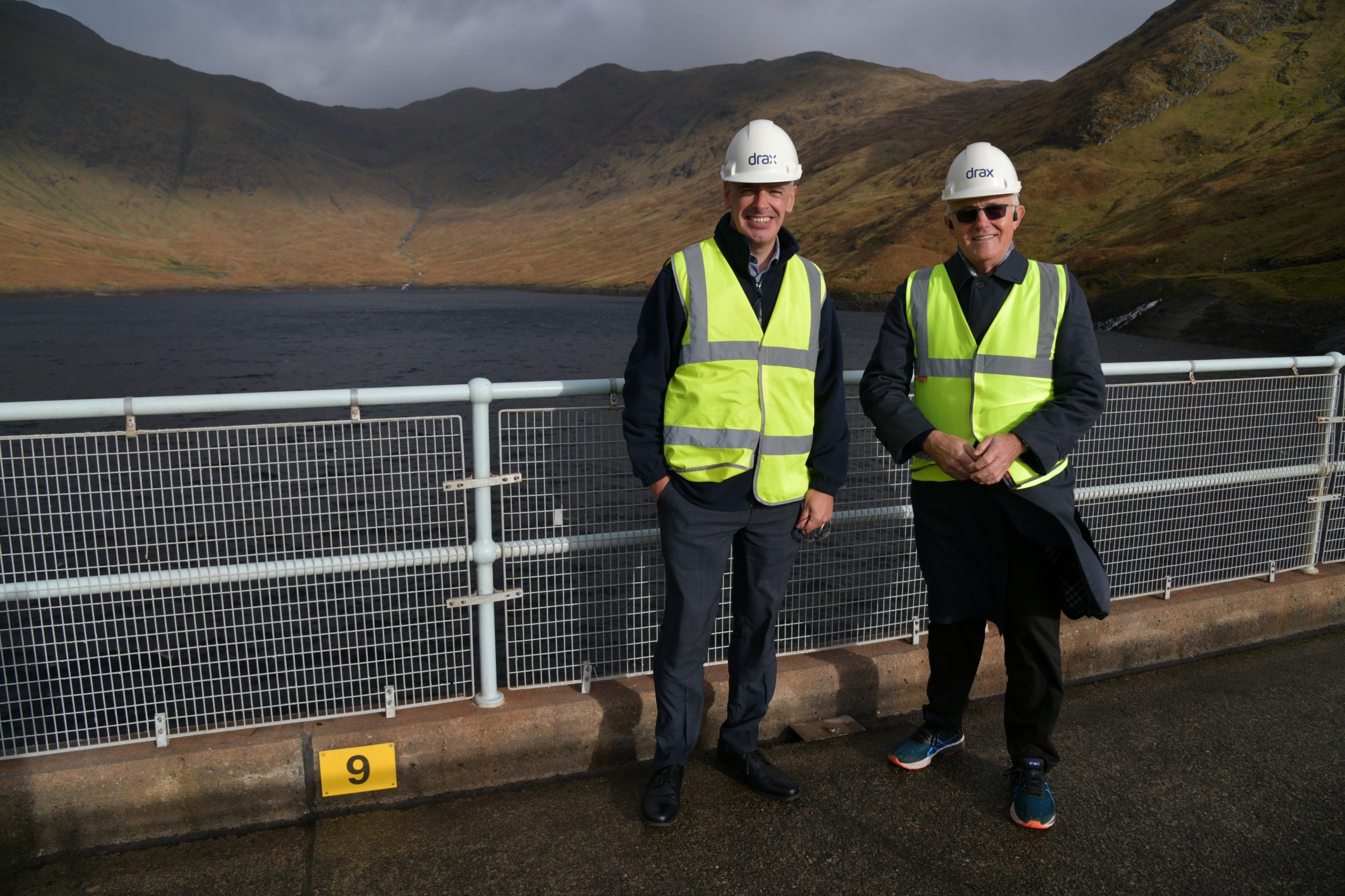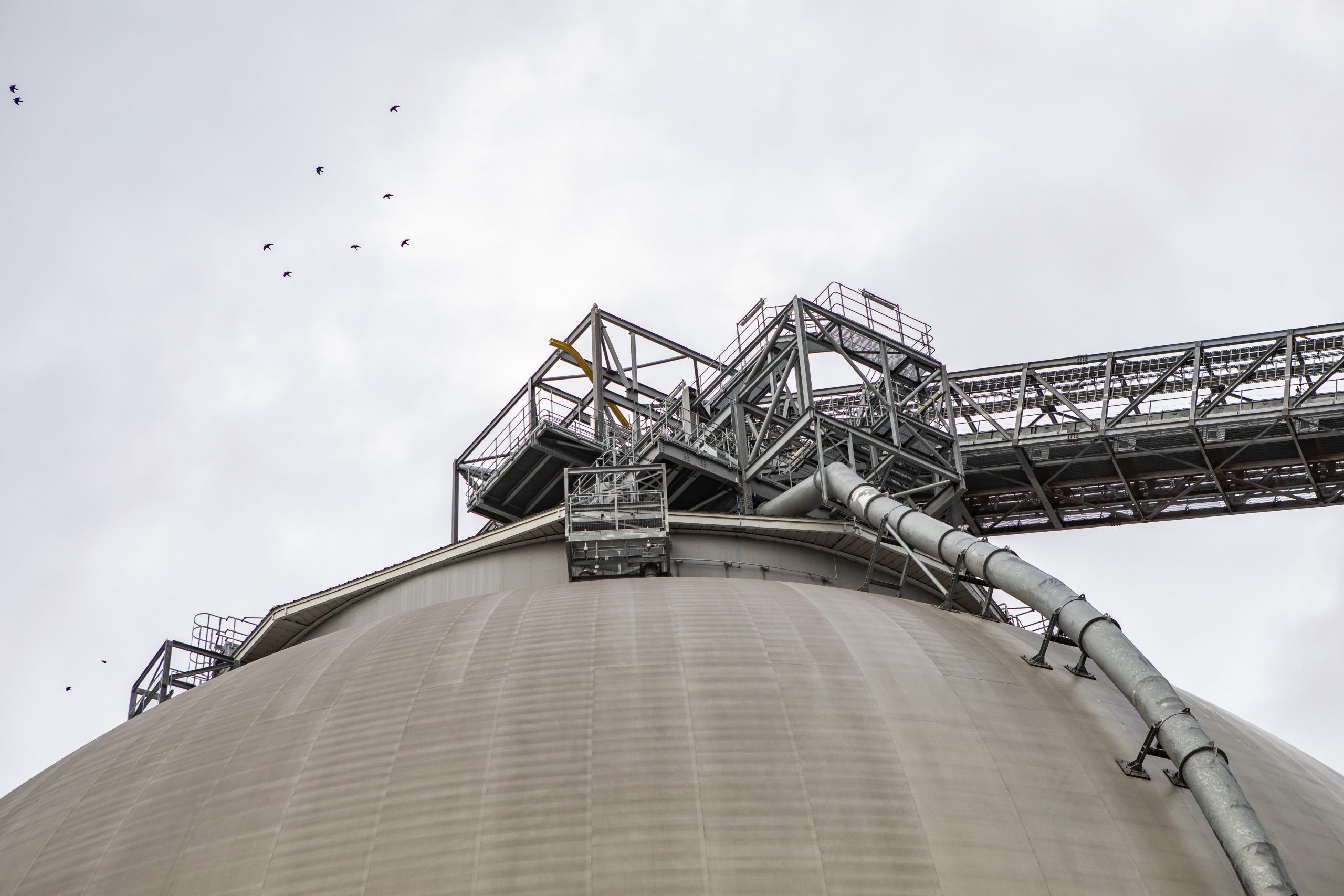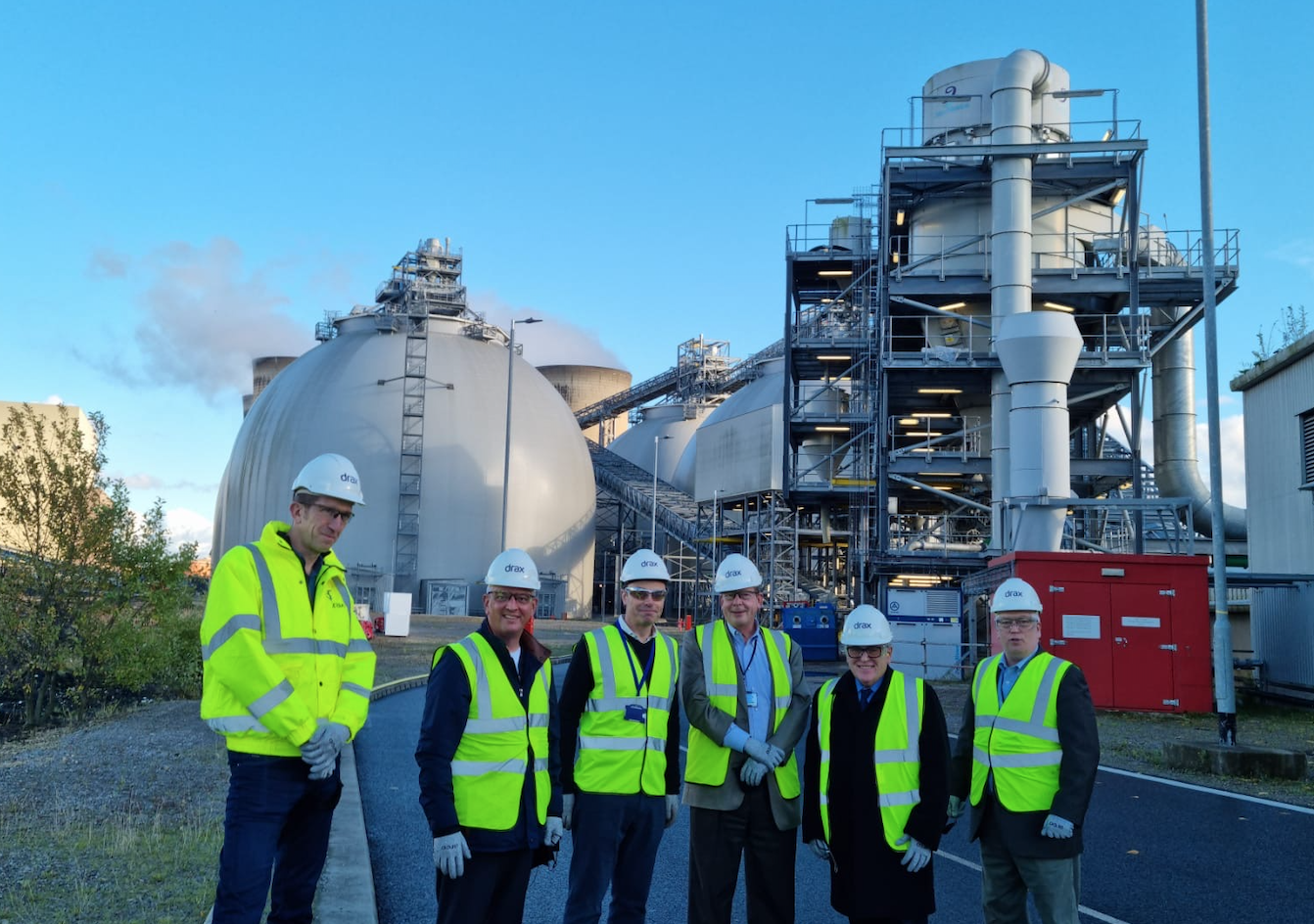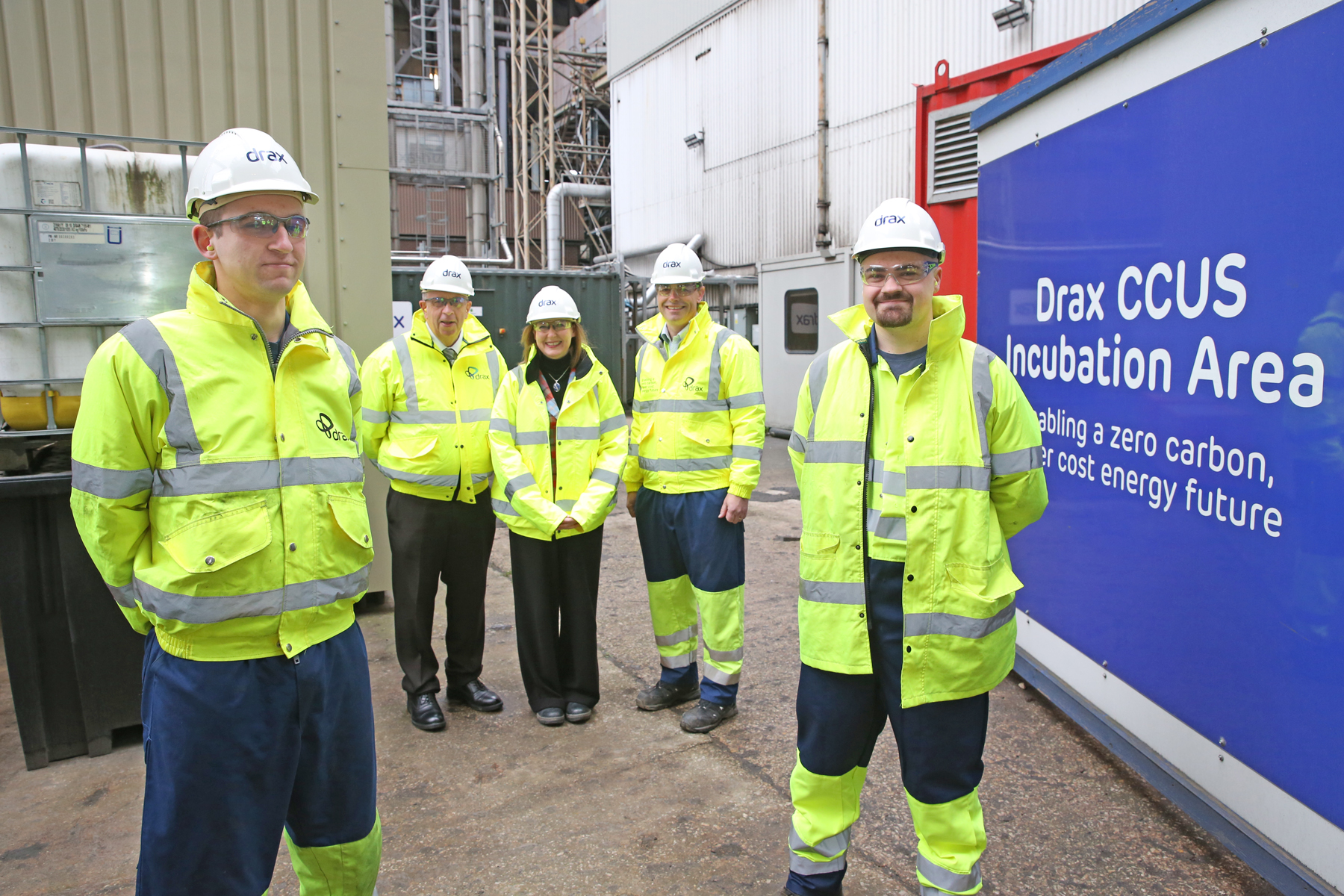
- Selby College and Drax have secured more than £270,000 of funding from government to develop the UK’s first educational programmes in carbon capture, to enable the renewable energy company to develop a workforce fit for the future.
- The training will equip Drax’s employees with knowledge, skills, and practical experience, to operate the vital climate saving negative emissions technology bioenergy with carbon capture and storage (BECCS).
- The initiative between Drax and Selby College will help to protect jobs, plug the skills gap, and build a workforce with the vital skills needed in the transition to net zero – and builds on an existing £180,000, five-year partnership aimed at supporting education and skills.
The £272,000 grant, from the Department for Education’s Strategic Development Fund, will allow the College to develop a brand-new training course in carbon capture and storage technologies, supporting Drax’s plans to develop the vital negative emission technology BECCS at its power station near Selby.
The course will start next year and will equip both current and future Drax employees with the vital skills needed to operate this critical negative emissions technology, ensuring the region is at the forefront of the green industrial revolution.
The programme will also be available to other organisations and individuals interested in developing their knowledge and understanding about carbon capture and storage. The course is being designed as an introduction to the subject, with the aim of adding more modules and units over time.
Liz Ridley, Deputy Principal of Selby College, said:
“Selby College is committed to supporting businesses and industries to develop specific training programmes that support their current and future workforce development. Our ongoing partnership with Drax has enabled us to secure this funding to create tailored education plans that will equip its workforce and supply chain with the skills needed as we transition into a zero-emission future.”
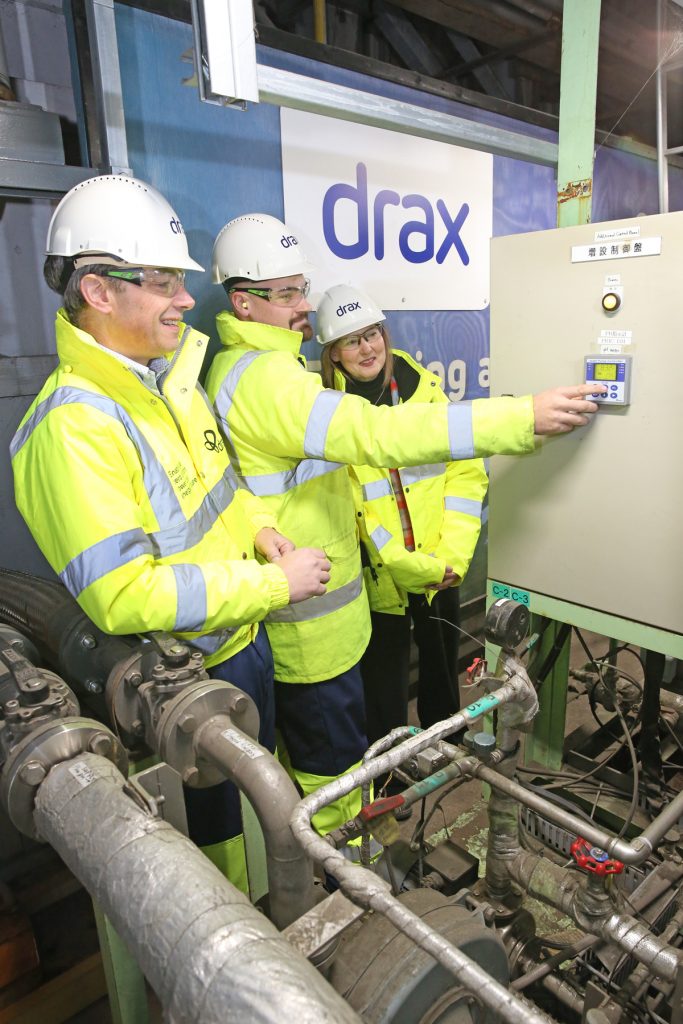
Bruce Heppenstall Drax Plant Director, Lewis Marron, Drax 4th Year Apprentice, and Liz Ridley Deputy Principal at Selby College.
Bruce Heppenstall, Plant Director at Drax, said:
“It’s critical businesses like Drax have access to a skilled workforce, with the knowledge and expertise to operate negative emissions technologies that will be vital in enabling the UK to reach its legally binding net zero targets. Through our partnership with Selby College, we are able to futureproof our workforce, ensuring we are at the forefront of the green industrial revolution, creating and protecting thousands of jobs here in the North.
“Deploying BECCS at Drax will not only deliver for the environment, but it will also deliver for the economy. It could kickstart a whole new sector of the economy and be the catalyst for a post-covid economic recovery.”
Minister for Skills Alex Burghart said:
“It is fantastic to see Selby College working with Drax to offer people the skills they need to progress in green careers in their area.
“Offering people the chance to upskill in the latest in-demand technologies is vital to plug skills gaps in our economy, and ensure we have a workforce fit for the future.”
Nigel Adams, MP for Selby and Ainsty, said:
“Electricity generated by Drax using sustainable biomass is key to expanding the wider economy of Yorkshire and Humberside. The transition from coal to biomass demonstrated how businesses can transform and thrive as part of our new “net zero” economy.
To build on this leadership it is vital that businesses like Drax have the skilled workforce to operate the new green technologies and maintain their leading position. The ongoing partnership between Selby College and Drax will provide the essential facilities and courses for local people to develop their skills, and I look forward to seeing this partnership flourish and feed into the development of clean green industries across our region.”
Through its transition from using coal to sustainable biomass, Drax has safeguarded hundreds of jobs at its power station, as well as more than 6,600 across its supply chain in the North. It aims to go further by building BECCS, with the creation of more than ten thousand jobs at the project’s peak. Its first BECCS unit could be up and running in 2027, delivering the world’s biggest carbon capture project, permanently locking away millions of tonnes of CO2 each year.
The new CCS educational programme builds on a five-year, £180,000 partnership Drax announced with Selby College in 2020, which enabled the College to invest in ICT equipment to support remote learning, as well as state-of-the-art engineering equipment and a series of events on green energy.
ENDS
Editor’s Notes
- The Department for Education’s Strategic Development Fund (SDF) is a pilot programme which aims to respond to local priorities for skills and innovation. This includes supporting the development of courses that will provide the skills and education needed for future industries, particularly the use of new fuel technology, green energy, robotics, artificial intelligence and the latest electric vehicle maintenance.
- As part of the SDF pilot programme, Selby College has received £272,000 in funding to develop and deliver courses which cater to local priorities for skills and innovation.
- An Introduction to Carbon Capture and Storage’ is equivalent to a Level 4 standard programme, which aims to equip a range of employees, supply chain workers and College students with a basic knowledge of how BECCS works and the theory and practice behind the technology.
- The module will be piloted with 50 learners between 1st January until 31st March 2022 and then rolled out to a further 80 companies and 450 learners from 1st April 2022 and 31st March 2024, subject to future funding.
- To facilitate future delivery at scale and to 24/7 industries, 50% of the learning will be delivered via an online teaching platform, supplemented by remote research and assessment work and summatively assessed via a two-day practical workshop using the specialist modular rig purchased with SDF funds
- Drax has a history of supporting education and skills in the communities local to its operations. In October last year they announced a five-year, £180,000 partnership with Selby College to deliver community education programmes, as well as support for retraining, to ensure students are developing the skills needed in innovative clean technologies which will help to drive a zero-carbon economy.
- This year Drax continued its apprentice programme welcoming new apprentices to its power station, near Selby North Yorkshire.
- Since the start of the Covid pandemic Drax has invested more than £750,000 in support for its customers and local communities during the Covid-19 crisis, including donating 1,200 laptops to 94 schools and colleges across the country, including 562 to schools across Yorkshire, Humberside and Lincolnshire.
- Prior to the covid crisis, around 12,000 people visited Drax for educational tours each year, many of whom were students, visiting as part of Drax’s efforts to work with schools and colleges to promote Science Technology Engineering and Maths (STEM) subjects
- To ensure school pupils didn’t miss out on these important tours and valuable experience of the world of work during the Covid-19 crisis, the company has created virtual tours for people to access online and has as well launching a virtual work experience programme, so students learn first-hand what it’s like to work in the power sector.
- In December 2019 Drax announced its world-leading ambition to use BECCS to permanently remove more carbon dioxide from the atmosphere than it produces right across its operations – creating a negative carbon footprint for the company by 2030 and making a significant contribution towards the UK’s net zero target.
- BECCS at Drax could underpin a Zero Carbon Humber whereby other industrial businesses in the region could tap into the same carbon transportation and storage infrastructure enabling the wider decarbonisation across the region.
- Selby College is the largest education provider in the Selby District, with more than 3,000 students.
- Selby College’s students have access to courses ranging from entry level up to degree courses in a range of subjects, including Art & Design, Business, Childhood Studies, Digital Technologies, Education, Engineering, Social Science and Sport.
Media contacts:
Drax Media Contact
Ben Wicks
Media Manager
[email protected]
07761 525662
Top image caption: (From L – R) Cameron Shipstone, Drax 4th Year Apprentice, Steve Butler Engineering Manager at Selby College, Liz Ridley Deputy Principal at Selby College, Bruce Heppenstall Drax Plant Director, Lewis Marron, Drax 4th Year Apprentice.
About Selby College
Selby College is a highly rated College in the heart of North Yorkshire, providing education and training opportunities for students aged 16 right up to 70+. Learners from all over Yorkshire and the Humber travel to Selby College because of its reputation for high-quality education.
Providing a wealth of courses and clear progression routes, Selby College offers A Levels, Vocational courses, Apprenticeships, Higher Education, Adult Learning and Professional Courses for Employers.
Established in 1984, the College today employs more than 200 teaching and support staff. Following a £35m investment in its state-of-the-art campus, Selby College boasts some of the most up-to-date facilities of any education provider in the area.
Selby College is also playing a leading role alongside other local institutions in the development of the Yorkshire & Humber Institute of Technology, which is one of twelve of its kind across the country designed to increase higher-level technical skills for employers. The College has also been selected by the Department of Education to deliver its brand-new T Level qualifications from September 2022, which are high-quality technical alternatives to A Levels.
For more information visit www.selby.ac.uk
About Drax
Drax Group’s purpose is to enable a zero carbon, lower cost energy future and in 2019 announced a world-leading ambition to be carbon negative by 2030, using Bioenergy with Carbon Capture and Storage (BECCS) technology.
Its 3,400 employees operate across three principal areas of activity – electricity generation, electricity sales to business customers and compressed wood pellet production and supply to third parties.
Power generation:
Drax owns and operates a portfolio of renewable electricity generation assets in England and Scotland. The assets include the UK’s largest power station, based at Selby, North Yorkshire, which supplies five percent of the country’s electricity needs.
Having converted Drax Power Station to use sustainable biomass instead of coal it has become the UK’s biggest renewable power generator and the largest decarbonisation project in Europe. It is also where Drax is piloting the groundbreaking negative emissions technology BECCS within its CCUS (Carbon Capture Utilisation and Storage) Incubation Area.
Its pumped storage, hydro and energy from waste assets in Scotland include Cruachan Power Station – a flexible pumped storage facility within the hollowed-out mountain Ben Cruachan.
Pellet production and supply:
Drax owns and has interests in 17 pellet mills in the US South and Western Canada which have the capacity to manufacture 4.9 million tonnes of compressed wood pellets (biomass) a year. The pellets are produced using materials sourced from sustainably managed working forests and are supplied to third party customers in Europe and Asia for the generation of renewable power.
Drax’s pellet mills supply around 30% of the biomass used at its own power station in North Yorkshire, England to generate flexible, renewable power for the UK’s homes and businesses.
Customers:
Through its two B2B energy supply brands, Haven Power and Opus Energy, Drax supplies energy to 250,000 businesses across Britain.
For more information visit www.drax.com



